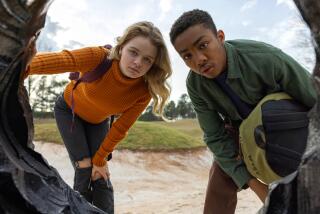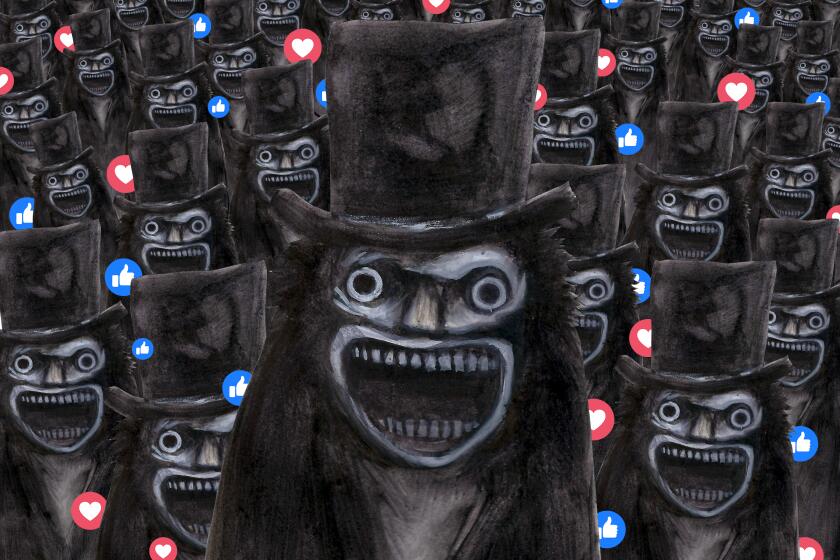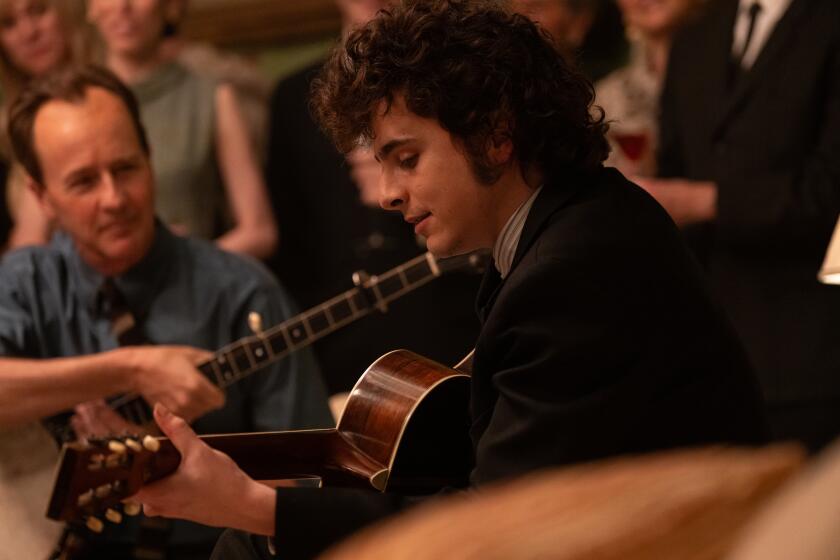The cold, hard facts of making ‘Defiance’
In the freezing forests of Belarus, as the Nazis swept through Europe, handfuls of Jewish refugees banded together under the leadership of the Bielski brothers to survive the killing winter and beyond. But they didn’t just survive; they struck back, attacking German soldiers and collaborators, performing acts of sabotage and supporting other partisan groups. All told, the Bielskis are said to have rescued about 1,200 Jews.
And you’ve probably never heard of them until now.
“So many things were injunctions to this piece of history,” said Ed Zwick, director, co-producer and co-writer of “Defiance,” which chronicles the struggles of the community that sprang up in that forest.
“Surprisingly, many of the survivors are loath to talk about it. The Bielskis too -- I’ve gotten to know the family, and the [brothers’] sons say their parents had to be pushed; they didn’t want to talk about it. People would come up and say, ‘You know, your father saved my life.’ Eventually, it all became revealed to them.”
Daniel Craig,”Defiance,” Liev Schreiber”Defiance,” and Jamie Bell play the three adult brothers, farmers and sometime troublemakers reluctantly transformed into guardian -- and avenging -- angels. Zwick (“Blood Diamond,” “Glory”) describes the popular image of Jewish resistance as generally limited to the ill-fated Warsaw Ghetto uprising; he was presented with ample evidence to the contrary at a “Defiance” screening for families of survivors at New York’s Museum of Jewish Heritage.
“They had a map that showed all the places in which there had been resistance,” he said with some residual amazement. “It was ubiquitous. It was usually thwarted and futile. But in fact, there were thousands, many of whom joined the Russian partisans.”
Zwick, bearded, slightly rumpled, looking and sounding like the cool professor, said in his Santa Monica offices that he and co-writer Clayton Frohman had spent 10 years on the project, knowing that to get a drama of this scale made, everyone -- the stars, the production team, the crew -- would have to take steep pay cuts and endure some rough weeks in ugly conditions. The film, which opens Dec. 31, convincingly re-creates the misery the refugees suffered through.
“I didn’t have to try very hard! When it’s snowing, when the wind is blowing off the steppe and coming in off the Baltic and you’re down by the lowlands and rivers and it’s that damp that penetrates and you’re trying to load a Schmeisser [submachine gun] or dig a trench, you don’t have to talk about Stanislavski a lot,” Zwick says of the Lithuanian winter.
“The conditions were the same that stopped Hitler as he went toward Moscow in 1942 and 1943. And these people did it with newspapers wrapped around their feet. There we were in our Gore-Tex and down, so it was humbling to think about what they had done.”
Two scenes in particular resonated deeply with the director, scenes quite divergent in tone.
In one, the crowd of refugees has beaten to death a soldier taken prisoner. “In this moment of group hysteria, as it swells, you come to understand the blood lust that is there, that is latent and becomes manifest in that moment.
“Similarly, the wedding [scene] was so beautiful and moving to all of us. It came around the midpoint and we had all gotten to know each other and here are these beautiful young people, Jamie [Bell] and Mia [Wasikowska], and weddings are emotional anyway. But in that circumstance, the idea that these people had fought so to have their humanity and that the wedding was as defiant as any killing, was very moving and exceeded what I imagined we could accomplish.”
Apart from everything else, Zwick allowed that the project had “personal resonance.” “It was my grandfather’s family, many of whom were lost in the Holocaust. My grandfather had another brother who he described as having ‘gone to the forest’ and I never knew what that meant.”
--
Ordona is a freelance writer.
More to Read
Only good movies
Get the Indie Focus newsletter, Mark Olsen's weekly guide to the world of cinema.
You may occasionally receive promotional content from the Los Angeles Times.








